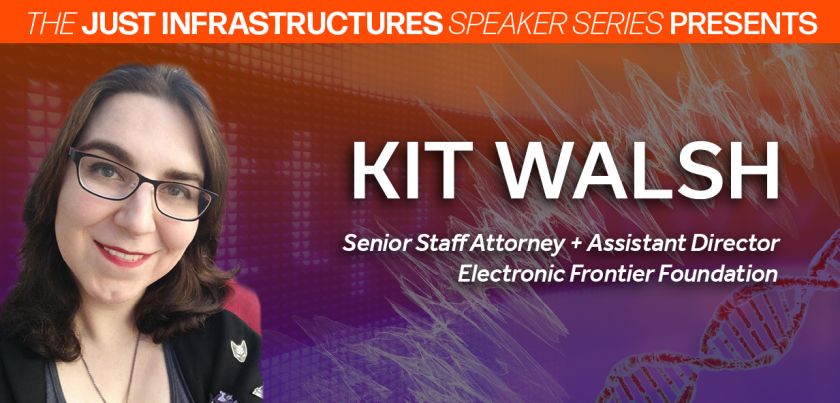Just Infrastructures Speaker Series: Kit Walsh

Kit Walsh, senior staff attorney and assistant director at the Electronic Frontier Foundation, will present "A Practical Framework for Human Rights Advocates to Combat Automated Injustice."
Abstract: Algorithmic decision making is more and more common, and both potential and actual harms are well-documented. In this session of the Just Infrastructures series, Kit Walsh (she/her) will present both how advocates are using existing legal frameworks to protect the rights of those subject to these systems, and a framework for understanding the impact of these systems in the different contexts where they can be deployed, to inform future policy efforts.
Kit Walsh (she/her) is a senior staff attorney and assistant director at the Electronic Frontier Foundation, where she pursues impact litigation and policy to protect the rights of activists, journalists, researchers, and all people who are subject to new technologies. Her work includes protecting the autonomy of technology users, online expression, and the due process rights of criminal defendants and others who are processed using algorithmic decision making tools. Prior to joining EFF, she led the civil liberties practice at Harvard's Cyberlaw Clinic and previously cut her teeth litigating private disputes. She holds a JD from Harvard Law School and a BS from MIT, where she worked on making us all interconnected cyborgs — until she realized what a bad idea that would be, given our current systems of power, and decided to pursue social change instead.
Just Infrastructures was launched by researchers in the iSchool, Department of Computer Science, and College of Media to interrogate the complex interactions between people, algorithms, and AI-driven systems.
Find more information and register for the event on the Just Infrastructures web page.
This event is sponsored by Grainger College of Engineering Strategic Research Initiative, School of Information Sciences, Computer Science Department, and Community Data Clinic